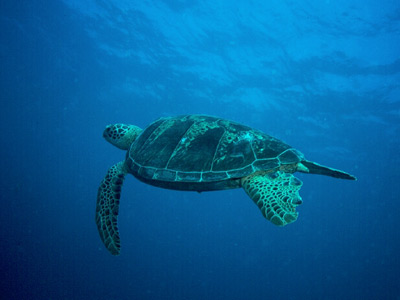A two day workshop was organized from the 21st – 22nd November at the University of The South Pacific, Institute of Applied Science Department, where partners and stakeholders met to review the Fiji Sea Turtle Recovery Plan (FSTRP). Organized by the World Wild Life Fund for Nature, various conservation groups and relevant government departments used the two days to strengthen partnerships and Collaboration work, inform new and existing stakeholders on the FSTRP, capture information about turtle conservation for each organization, revive the Fiji Sea Turtle Steering Committee and also revise the FSTRP.
The Fiji Sea Turtle Recovery Plan (FSTRP) was developed in 2008 involving a wide range of stakeholders from Government to local communities. The FSTRP provided a guideline that could be adapted by stakeholders and partners involved in turtle conservation work. With various organistions formulating and implementing sea turtle conservation projects through out Fiji, the FSTRP laid a platform for collaborative work amongst partners and stakeholders which is absolutely vital to management and conservation efforts for a species such as the marine turtle.
Out of the seven sea turtle species that exist, five are today classified as “Endangered’ or ‘Critically Endangered’ on the IUCN Red List. Their numbers have decreased drastically due to anthropogenic activities such as by catch due to imprecise fishing methods, poaching and illegal trade of meat, eggs and shells, coastal development, plastic and other marine debris, global warming and ocean pollution [www.seeturtles.org].
On the first day of the workshop, participants were introduced to the Fiji Sea Turtle Recovery Plan and the ten years Turtle Moratorium in Fiji. This was followed by a presentation from the Department of Environment officer on the Endangered and Protected Species Act 2002 [EPS] and the Convention of International Trade of Endangered Species of Wild Flora and Fauna [CITES} linkage to the Fiji Biodiversity Strategy and Action Plan. A presentation on the national links to the South Pacific Regional Environment Program [SPREP] Marine Turtle Action Plan and the Convention of Migratory Species followed.
The various working groups also got a chance to present on their turtle conservation works at their different sites, which included presentations from Mamanuca Environment Society, the Dau ni Vonu network and Department of Fisheries who all shared on the objectives met during various turtle project phase, challenges faced and lessons learnt from each respective turtle project that the different stakeholders and partners have completed or are currently working on.
The focus of the second day was the revise of the FSTRP and aligning the national plan to the regional plan. This was achieved by ‘interactive sessions’ where participants break out into the four different working groups as outlined in the FSTRP which included; ‘the Research and Monitoring Working Group, Awareness, Education and Communication Working Group, the Policy Working Group and the Community Engagement Working Group. The interactive sessions allowed the different working groups to scrutinize the FSTRP and highlight areas which need amendments and improvements and also at the same time aligning these to the regional plan.
The workshop had a positive outcome with a skeleton plan drawn up to aid the drafting of a Revised Fiji Sea Turtle Recovery Plan which will pave the way forward in the important work of protecting sea turtles.


